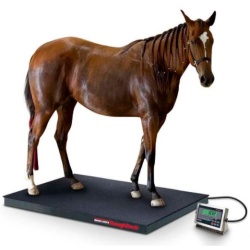Farms, often overlooked and underappreciated, form the backbone of our society. These unsung heroes are responsible for producing the food and resources that sustain our daily lives. From the fresh fruits and vegetables we enjoy to the grains that go into our bread, farms play an indispensable role in meeting our basic needs. In this article, we will explore the significance of farms in our daily life and how weighing scales are employed throughout their diverse processes, ensuring efficiency and precision in modern agriculture.
Farms and their Importance
The significance of farms cannot be overstated. They are the cradle of our sustenance, cultivating the essential ingredients that constitute our meals. Beyond food production, farms are responsible for raw materials like cotton, wool, and timber, which support various industries such as clothing, construction, and manufacturing. Farms also act as reservoirs of biodiversity, preserving flora and fauna that are crucial for ecosystem balance.
Moreover, the economic contribution of farms is immense. They provide employment opportunities to millions, particularly in rural areas, promoting self-sufficiency and reducing dependency on urban centers. Additionally, agriculture exports significantly contribute to a country’s GDP, boosting international trade and fostering economic growth.

Scales in Farming: An Integral Tool
In the realm of farming & agriculture, scales are indispensable tools that play a vital role in numerous processes. Whether it’s measuring inputs, optimizing production, or ensuring quality control, scales enable farmers to make informed decisions, leading to enhanced productivity and profitability. Here, we explore how scales are employed throughout various farming stages:
-
Fertilizer and Pesticide Application: Applying fertilizers and pesticides in the right quantities is critical to maximizing crop health while minimizing environmental impact. Scales aid in precisely measuring and distributing these, reducing the risk of overuse and preventing chemical runoff into water bodies.
-
Livestock Management: Scales are widely used in to weigh animals to monitor livestock health and growth. Regular weighing of animals helps farmers adjust their feeding regimes, detect health issues early on, and make informed decisions about breeding and culling.
-
Harvesting and Post-Harvest: During the harvest, scales are indispensable for determining the optimal time for reaping crops. Additionally, when sorting and grading produce, scales ensure that fruits and vegetables meet market standards, reducing waste and maximizing profitability.
-
Dairy and Poultry Farming: In dairy and poultry farming, accurate weighing of milk and eggs is crucial for inventory management and quality control. Proper weighing helps monitor individual animal productivity, detect health issues, and optimize feed rations, contributing to efficient production.
-
Agribusiness and Trading: Scales also play a critical role in agribusiness and trading. At farm gates and grain elevators, farmers and traders weigh commodities to determine fair prices and quantities. Moreover, in commodity trading, precise weighing ensures fair trade and trust among parties involved.
-
Waste Management and Environmental Impact: Scales are instrumental in managing agricultural waste. By accurately weighing crop residues and manure, farmers can employ sustainable waste management practices and minimize their environmental footprint.
Farms are the unsung heroes that sustain our daily lives, providing us with food, resources, and employment opportunities. The modern agricultural landscape heavily relies on precision and efficiency, which is where scales become indispensable tools. From seed selection to harvest, scales ensure that farmers make informed decisions, optimizing production while minimizing waste and environmental impact.
As we continue to face global challenges such as population growth, climate change, and resource scarcity, the role of farms and the importance of scales in agriculture become even more pronounced. Encouraging sustainable farming practices, promoting technological advancements, and supporting our farming communities are essential steps toward securing a resilient and thriving future for all.
